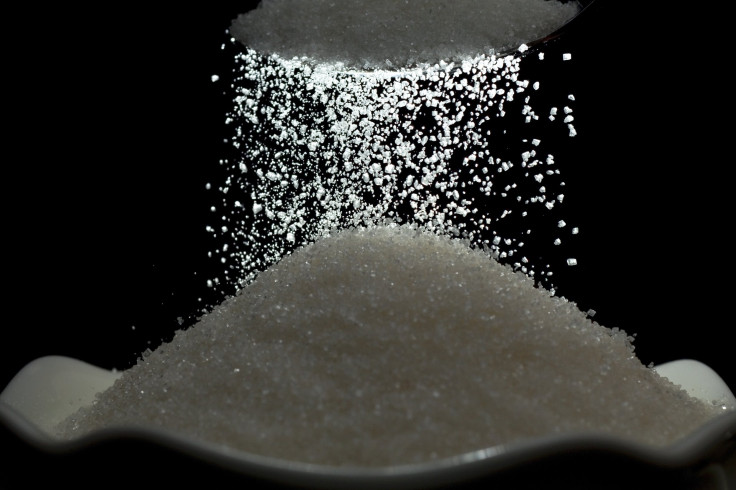Sugar Provides Better Stress Relief Than Aspartame: Why We Eat Junk Food When We're Stressed

You can't fool the brain when it comes to real sugar. It's sprinkled into roughly 80 percent of processed food products sold in grocery stores today, which is why consumers may find it to be such a great stress reliever. Researchers from the University of California, Davis, studied how eating and drinking sugar, as opposed to the artificial sweetener aspartame, may have the power to lower stress levels, and ultimately "reinforce habitual overconsumption."
The study, published in the Journal of Clinical Endocrinology and Metabolism, found that levels of the stress hormone cortisol dropped in women after two weeks of drinking sucrose, also known as table sugar. When they were asked to perform a set of math challenges, their cortisol dropped to lower levels than it did for women who were drinking aspartame.
Next, each woman underwent magnetic resonance imaging (MRI) scans on their brains, and the researchers found sugar was able to disrupt stress activity in the hippocampus. The hippocampus is a seahorse-shaped region of the brain responsible for regulating body temperature, thirst, hunger, sleep, circadian rhythm, mood, sex drive, and hormones. Sugar is a simple carbohydrate, which means it's processed through the body quickly, causing it to crash and leaving the person wanting more to fill the void. The stress-sugar cycle repeats itself until it forms bad, habitual eating patterns, according to researchers.
Chronic stress disorder is a rising problem among Americans, which may be why people tend to overconsume sugar in the form of food and drink. Last year, 77 percent of Americans said they regularly experience symptoms caused by stress, according to the American Institute of Stress. Poor nutrition ranks among the top causes for stress, and is defined as someone who consumes a lot of caffeine, processed foods, or refined sugars, all of which lead to inadequate diets. Experts warn sugar should not be seen as a way to lower stress.
“Eating lots of sugar certainly won’t help your stress levels in the long term — eating a healthy diet will have a positive effect on both your physical, and mental health,” Katherine Jenner, campaign director of Action on Sugar, told Food Navigator.
Nearly 10 years ago, the University of Cincinnati found similar results when sugar helped laboratory rats cope with difficult situations — it also lowered their stress hormone levels. The study was presented at a meeting for the Society for Neuroscience, where researchers found the artificial sweetener saccharine provided some stress relief, but not as much as sugar could.
The fact sugar provides itself to be more of a stress reliever than an artificial sweetener doesn’t mean consumers should be searching for anxiety relief in sugar, according to the Physicians Committee for Responsible Medicine. In fact, when a person eats to reduce stress, they should avoid foods and drinks with caffeine, high-fat concentrations, and sugar.
Source: Tyron MS, Stanhope KL, Epel ES, Mason AE, Brown R, Laugero KD, et al. Excessive Sugar Consumption May Be A Difficult Habit to Break: A view from the Brain and Body. Journal of Clinical Endocrinology and Metabolism. 2015.



























